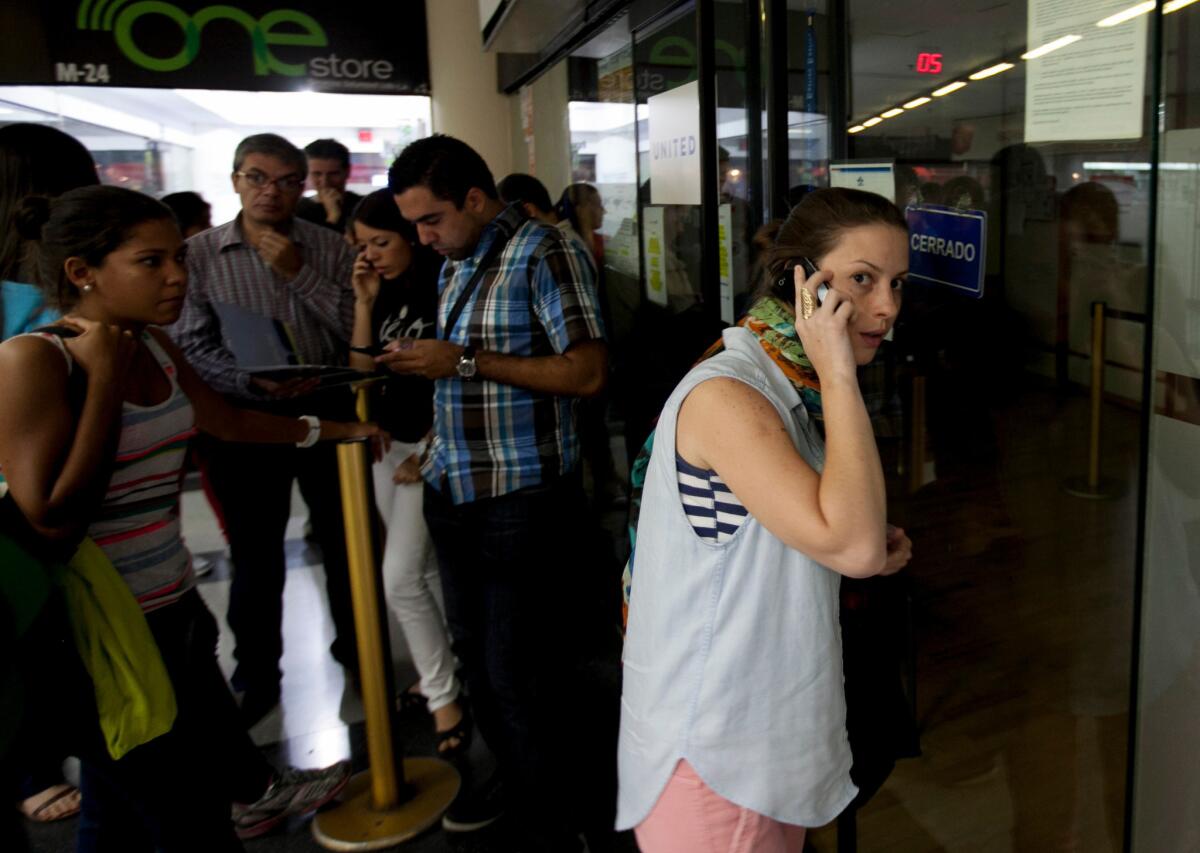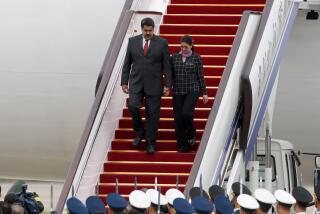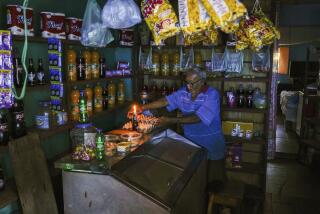Venezuela sees more airlines suspend ticket sales, demand payment

CARACAS, Venezuela — Three more international airlines on Friday joined the list of companies that have suspended ticket sales in Venezuela, complaining that the government owes them billions of dollars.
U.S.-based American Airlines and United Airlines and Panama’s Copa Airlines said they were halting ticket sales in Venezuela in lieu of the government’s failure to pay arrears that as of last month totaled $2.6 billion. Under Venezuela’s complicated foreign exchange rules, the government acts as intermediary in foreign sales of goods and services transacted in the country.
Airlines that previously announced a suspension in business operations included Air Canada, Tame of Ecuador and TAP Portugal. The $2.6 billion figure for the accumulated arrears came in a statement issued Dec. 12 by the International Air Transport Assn., an airline trade group.
“We can’t let this financial hole deepen on this route because of the lack of payment transfers,” Tame General Manager Fernando Guerrero said during a press conference in Quito, Ecuador, on Wednesday. He said Tame had not been paid for Venezuelan ticket sales since March.
As of Friday, no flights in or out of Venezuela had been canceled by foreign carriers, but the airlines had halted ticket transactions in bolivars, the local currency. Sales of tickets purchased with dollars are still being made, airline officials said.
Venezuela finds itself in a tightening cash shortage partly because of falling oil revenues resulting from declining productivity at oil fields and refineries, which supply more than 90% of government revenue and 70% of export sales.
An increasing percentage of oil output now goes directly to China to repay cash advances that over the years have exceeded $42 billion. Free or discounted oil that Venezuela ships to Cuba and several Caribbean nations generates less than market rate.
Of Venezuela’s estimated 2.3 million barrels of average daily oil output, about 330,000 barrels per day are thought to go to China to pay cash advances. Another 260,000 barrels per day are sent to Cuba and other neighbors at cut-rate prices, while 760,000 barrels per day are refined to meet local demand for fuel sold at a fraction of what it costs to process it.
The country’s dollar shortage is also a result of accelerating capital flight, analysts say, and the fact that sellers of dollars on the black market can receive 10 times or more the official 6.3 bolivars-per-dollar rate.
Last week, President Nicolas Maduro said in a speech to the National Assembly that the government was not planning to devalue the currency.
Domestic companies also claim the government is a deadbeat. Empresas Polar, Venezuela’s largest food products manufacturer, said it is owed $463 million destined for foreign suppliers but which the government has refused to transfer. In a statement this week, Polar said some suppliers have halted deliveries until they are paid.
Another sign of the government’s liquidity crunch can be seen in the scarcities of items at supermarkets in Caracas, the capital, where shelves have been emptied of basic foods and household items, including cooking oil, rice, poultry and toilet paper.
Special correspondents Mogollon and Kraul reported from Caracas and Bogota, respectively.
More to Read
Sign up for Essential California
The most important California stories and recommendations in your inbox every morning.
You may occasionally receive promotional content from the Los Angeles Times.










